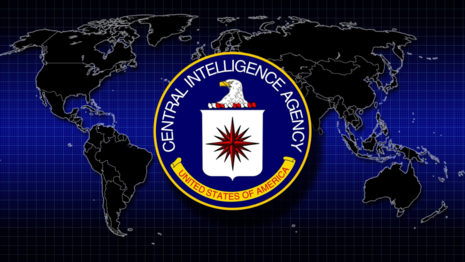 How can it be that in 2025, some leftists are still pretending that Russian collusion is a theory that hasn't been disproven? That it's not "fully digested"? There's still hope, even if "clarity never came."
How can it be that in 2025, some leftists are still pretending that Russian collusion is a theory that hasn't been disproven? That it's not "fully digested"? There's still hope, even if "clarity never came."
Such was the case with Keith Gessen, contributing writer for New Yorker magazine, who was reviewing a book bout the CIA, "The Mission: The CIA in the 21st Century," written by Tim Weiner (no relation to Carlos Danger aka Anthony Weiner).
Waves of Trump derangement flowed from Gessen in his Wednesday screed, "What Will Become of the C.I.A.?." The subtitle gives us a hint of TDS in the story, "The covert agency has long believed in the power of knowing one’s enemy. But these days the threats are coming from above." So who would be issuing the threats "coming from above?" Yes, the one about whom Gessen (and Weiner) is obsessed. So fasten your seatbelts.
The predominant intelligence story of Trump’s first Presidential run was, of course, Russian interference in the election. Years later, we still haven’t fully digested what actually happened and what it meant. Did the Russian operation sway the results? Even if it didn’t, what does it say that so many around Trump seemed willing to play along? Was this any worse than the dirty tricks of American politics past? For years, liberals followed a trail of crumbs from Paul Manafort to Konstantin Kilimnik to Oleg Deripaska, convinced that, somewhere, a smoking gun would be found. The fantasy was Watergate redux: nail down the connections, show how “high up” collusion went, and Trump’s Presidency would collapse under the weight of scandal. If only we could establish that Trump’s pal Roger Stone was in contact with WikiLeaks, which was talking to the Russians, who had hacked Hillary Clinton’s e-mails at Vladimir Putin’s direction—then the mystery would be solved, the nightmare over.
Apparently Gessen hasn't (or pretends he hasn't) heard about the results of the Mueller Report which concluded, as even the leftist NPR was forced to report that "Mueller Report Finds No Evidence Of Russian Collusion."
But clarity never came. There were too many cutouts and complications. G.R.U. hackers working for Putin were a far cry from the C.I.A.-linked burglars who broke into D.N.C. offices for Nixon; WikiLeaks was a media organization, arguably. Meanwhile, Obama was too careful; Senate Republicans were too truculent; the Steele dossier created unrealistic expectations. Even if we’d had perfect information, fully publicized, it probably would not have mattered. Trump, in front of the television cameras, had urged the Russians—“if you’re listening”—to find Hillary’s e-mails. His poll numbers were unaffected by this apparent solicitation of illicit foreign intervention.
The biggest "complication" for Gessen would be that Robert Mueller and his investigative team, after a couple of years of intense effort, found no actionable Trump-Russia collusion. Oh, and the reason why the Steele dossier created "unrealistic expectations" is that it was entirely fake. What does it say about Gessen that he continues to believe it was a credible source?
Gessen (and Weiner) reach a crescendo of madness at the conclusion of this tale of woe:
There was a time when the C.I.A.’s existential fear was of losing its adversary. In Al Qaeda, it found a new one; in Iraq, it created others. In Trump, it faces an adversary of a different kind. Weiner concludes his book by expressing his faith in the agency’s rank and file, but with a clear sense of foreboding. If a genuine emergency were to take place, and Trump tried to use the occasion to cancel elections or declare martial law, who would be able to stop him? What if he tried to make the C.I.A. great again? “Who would disobey him,” Weiner asks, “if he ordered the clandestine service to rebuild the secret prisons, overthrow a sovereign nation, or assassinate his political enemies?” Historically, Weiner writes, the C.I.A. has not directly defied orders. But individuals have blown the whistle, resigned in protest, and spoken to journalists. There may not be homes for old wizards of Armageddon, but surely there is space for them on MSNBC.
Yup! There is always space for those afflicted with Keith (Olbermann and Gessen) levels of Trump Derangement Syndrome at MSNBC.




